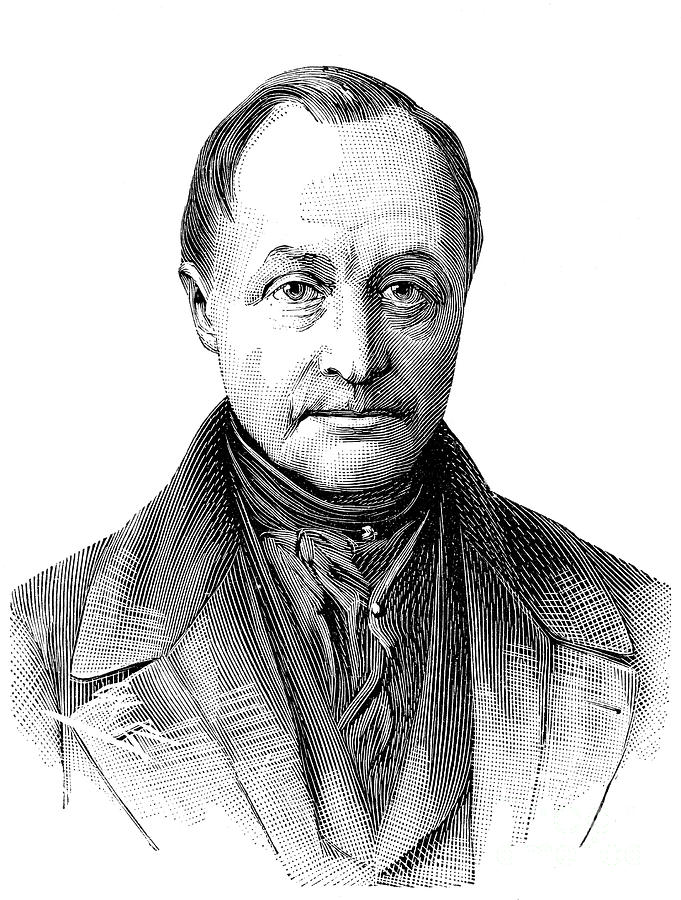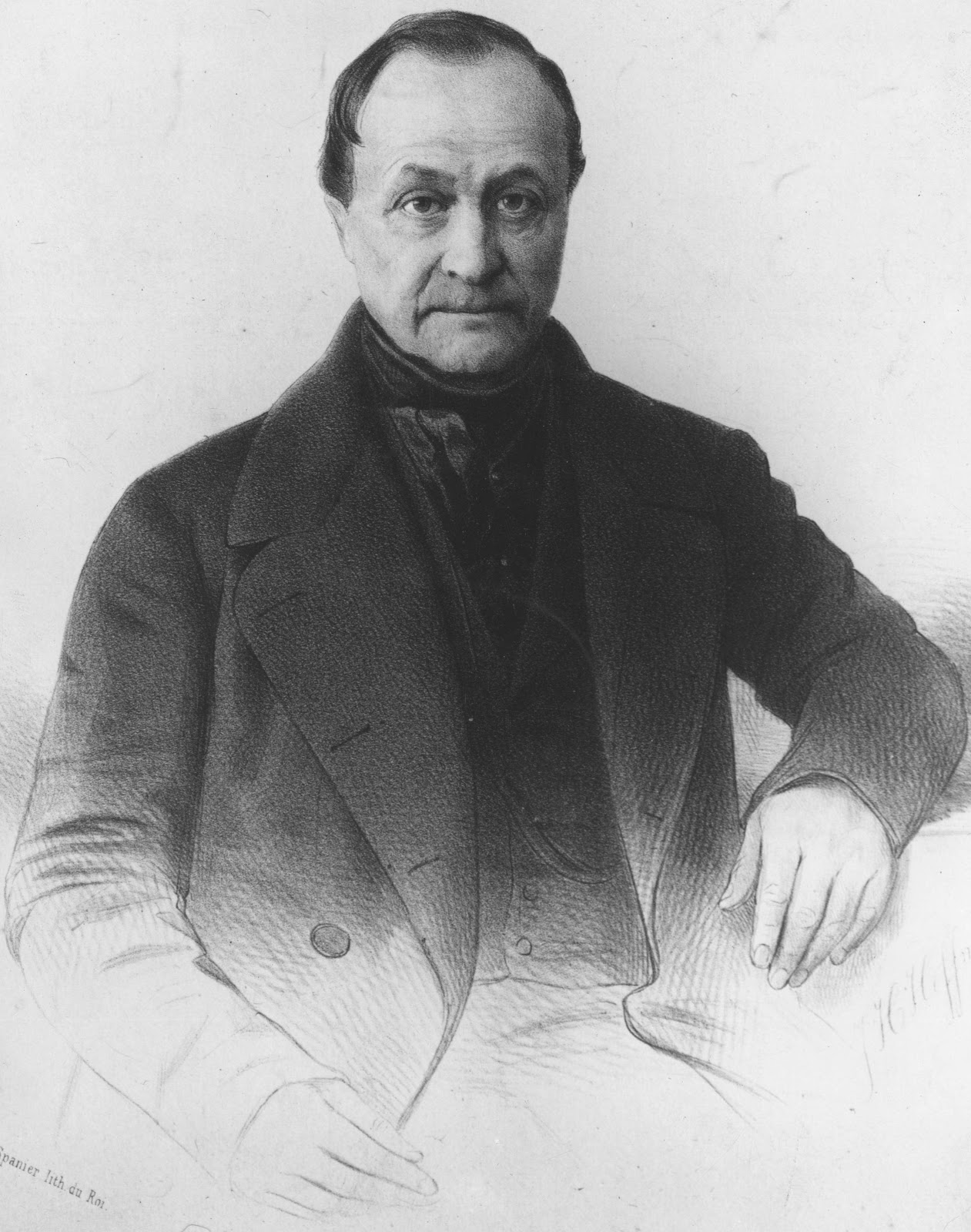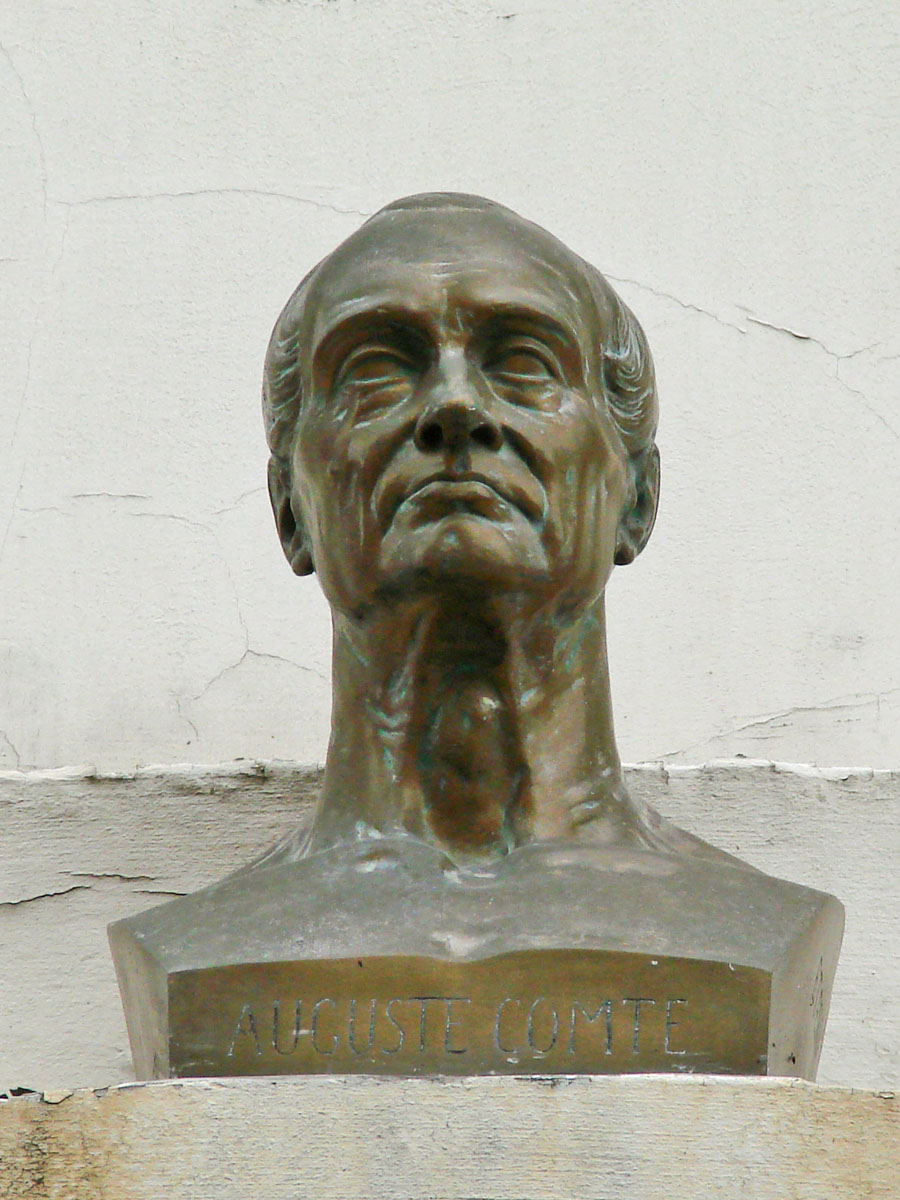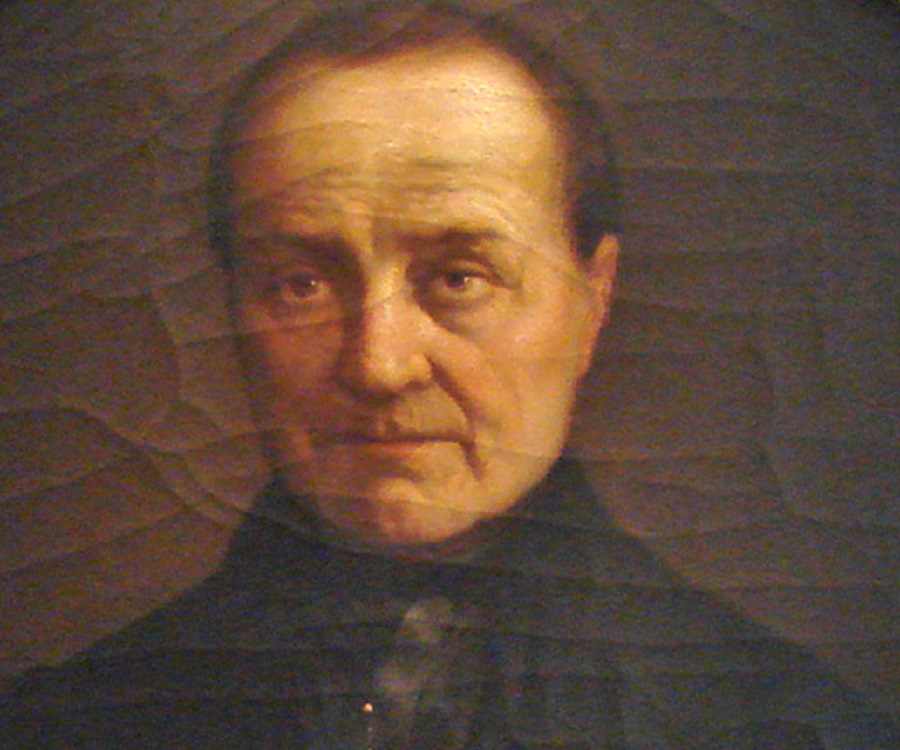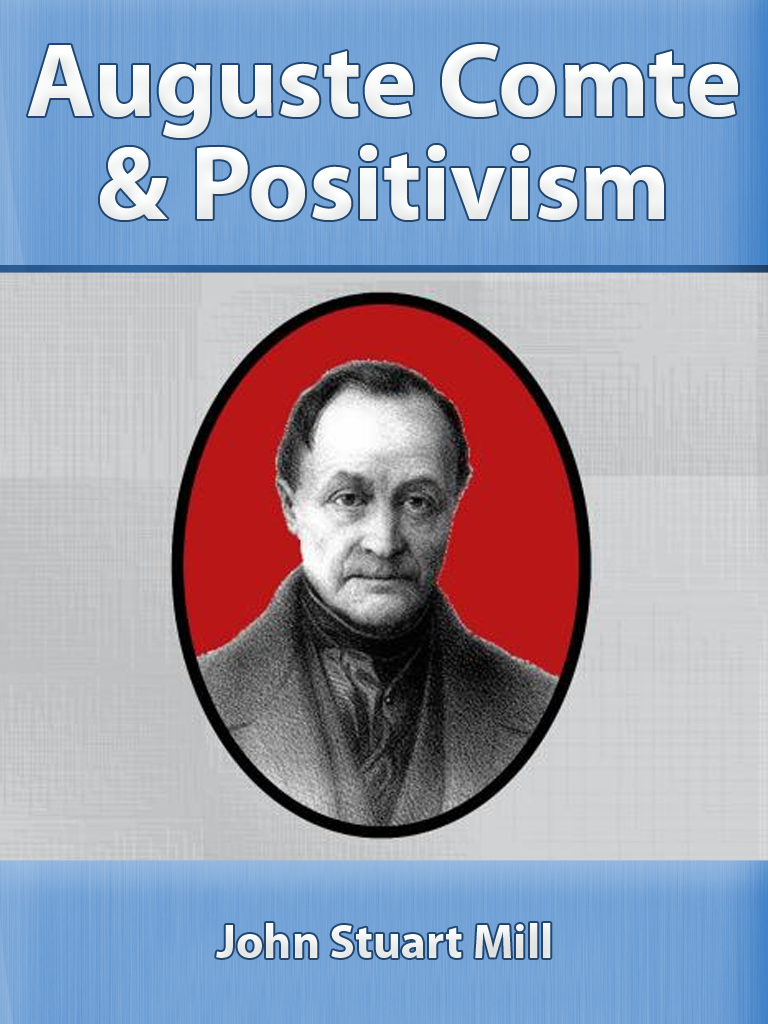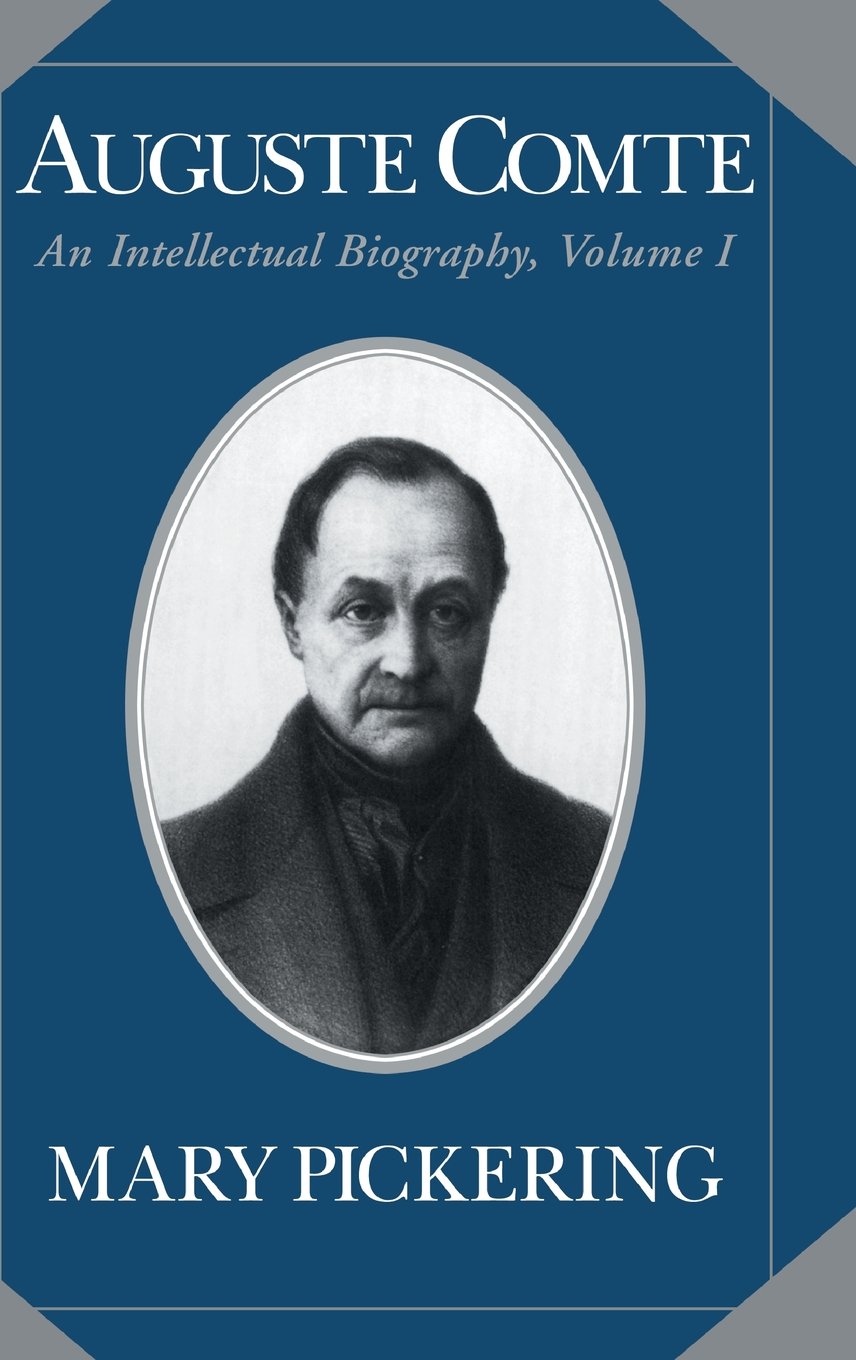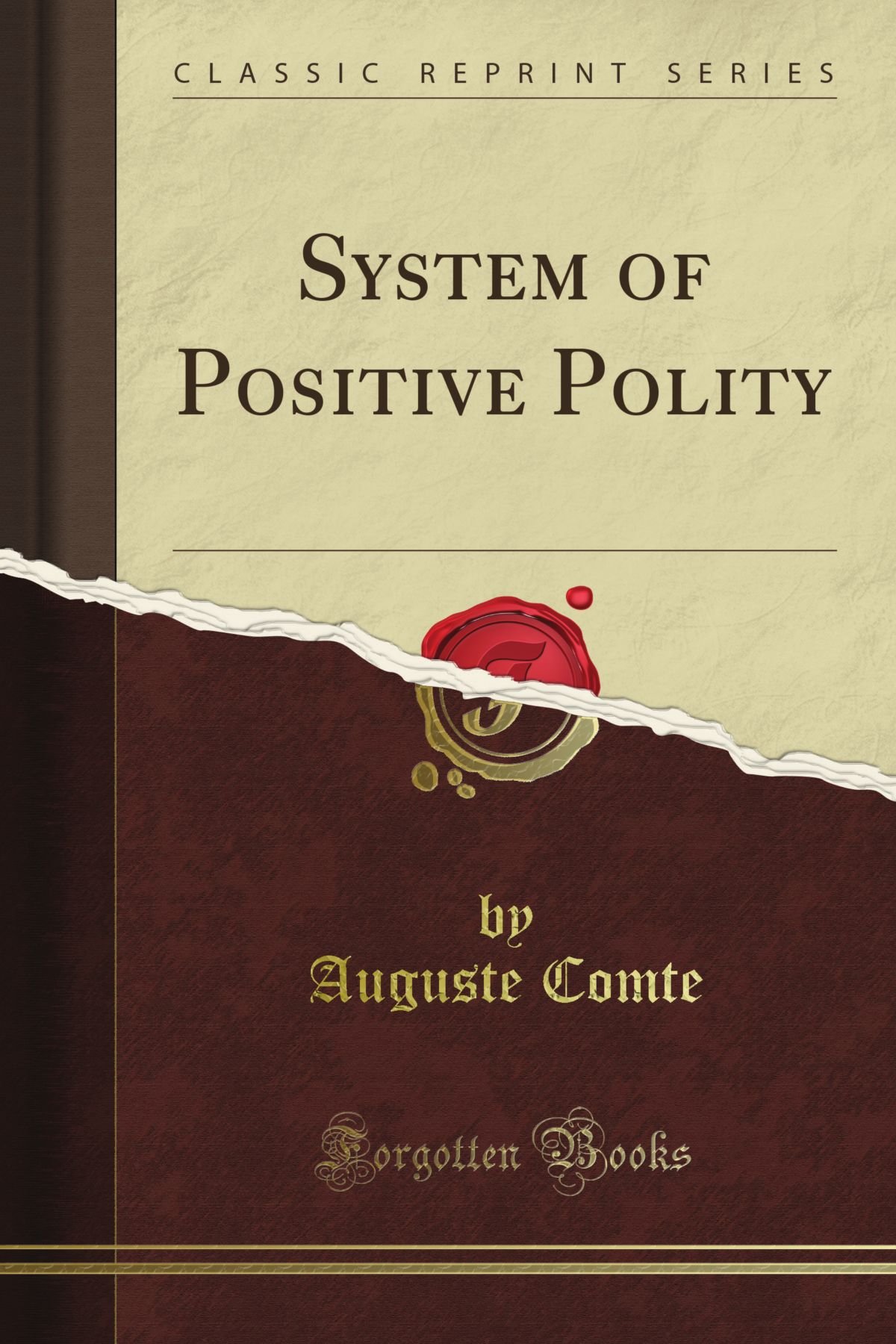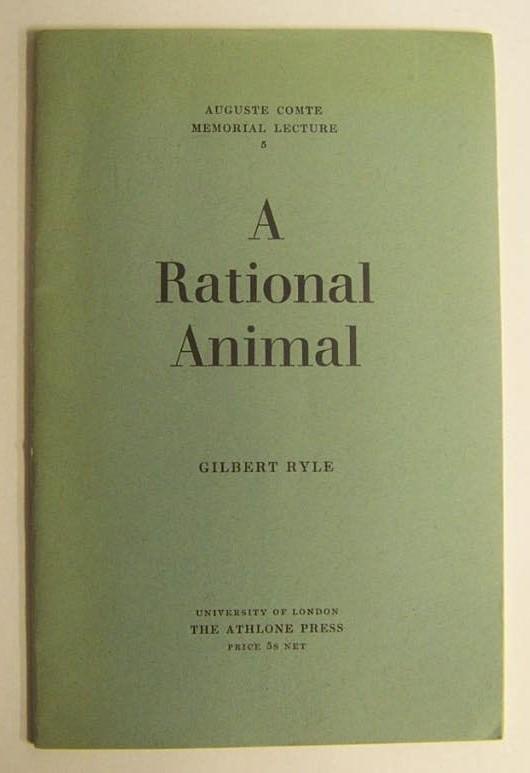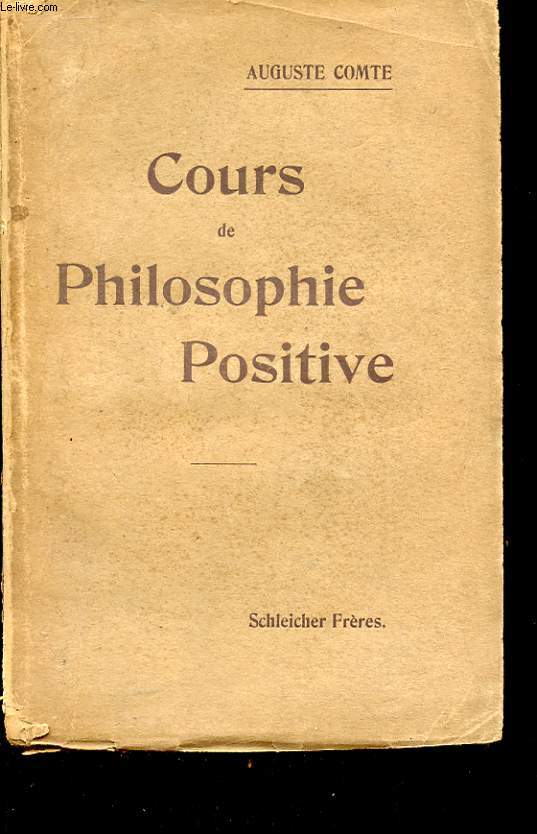
About John Stuart Mill
March 31, 2017
About Karl Marx
March 31, 2017Utilitarianism and Positivism
About Auguste Comte
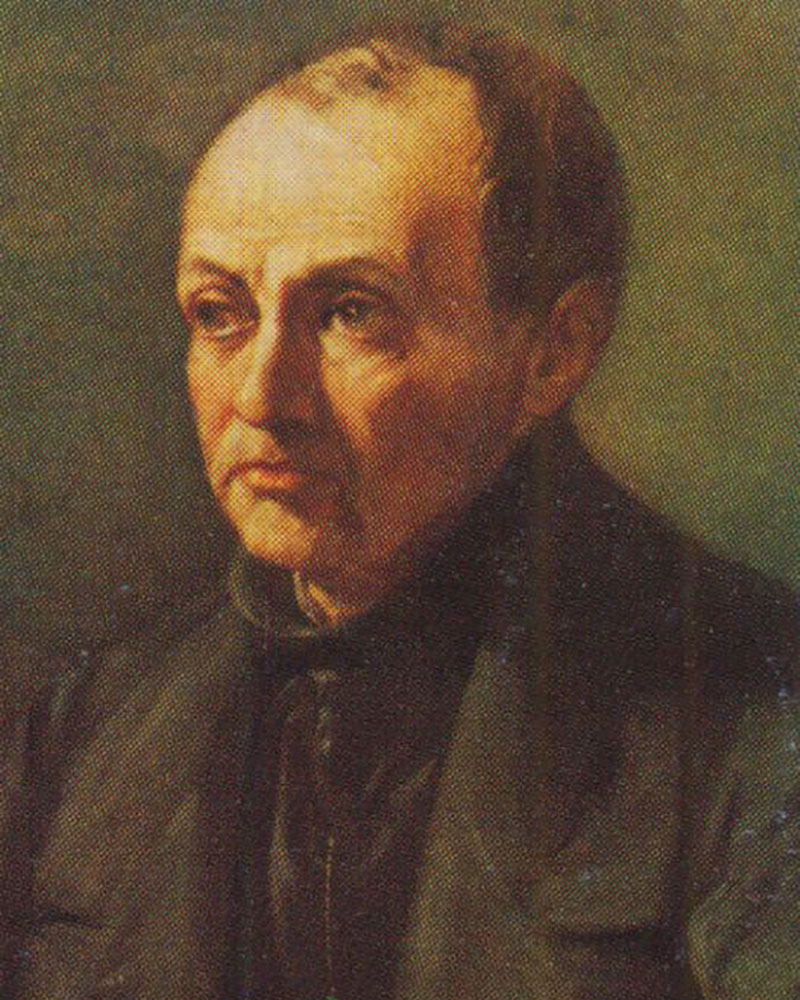
I sidore Auguste Marie François Xavier Comte (1798–1857), French philosopher and sociologist, came from a Catholic and monarchical family in Montpellier. He abandoned the Catholic faith at the age of 13. In 1814 he entered the £cole Poly-technique in Paris. This school was then the center of political liberalism and of progressive thought in France; the mathematician Gaspard Monge had been one of its founders, and it remained committed to the development of mathematics and the sciences.
While it is clear that Comte soon shifted away from pure liberalism, close scrutiny is required to establish his position with respect to conservatism and liberalism. His early writings indicate that he had many ideas in common with the counterrevolutionary and conservative movements at the beginning of the nineteenth century; later, at the beginning of the fourth volume of his Cours de philosophic positive (1830–1842), he explicitly acknowledged this affinity, stating that he agreed in part with Joseph de Maistre’s philosophy without, however, accepting his political views. Contrary to some views (Hayek 1952; Salomon 1955; Spaemann 1959), this does not mean that Comte can be identified with the counterrevolutionary thinkers of his time. Indeed, his attitude differed from that of the conservatives in the same way as did Saint-Simon’s; both tried to repudiate the principles of the French Revolution without at the same time relinquishing its achievements. This twofold attitude, similar to that which Hegel had expressed somewhat earlier, is corroborated by Comte’s position during the revolutions of 1830 and 1848 and by his humanitarian philosophy, which eventually became a religion of humanity: the worship of the Grand Être.
Comte’s association
with Saint-Simon, which began as early as 1817, is in itself further evidence that he does not belong with the conservatives. Despite Comte’s later protestations that he did not owe anything to Saint-Simon, it is certain that he was deeply influenced by this remarkably brilliant and inspiring aristocrat who devoted himself to building a new society based on the principle that it is the working class which is, in the broadest sense, the class of “producers.” Recent historical research (especially by Gouhier 1933–1941), has established that their collaboration during the period from 1817 to 1824 was much closer than Comte ever admitted. The change in Comte’s personal feelings toward Saint-Simon can best be followed in his correspondence with his friend Valat (1870), which shows how much he was initially stimulated by Saint-Simon and how he later withdrew from the relationship.
Saint-Simon had recorded his essential ideas, before he evermet Comte, in the most coherent of his booklets, Mémoire sur la science de I’homme and Travail sur la gravitation universelle, both written in the year 1813. These contain the famous “law of three stages”; even though Saint-Simon was incapable of developing this idea into a comprehensive and consistent philosophy of history, as Comte was to do in the Cours, the idea, nevertheless, was originally his. In general, Saint-Simon dissipated his ideas in innumerable letters, leaflets, prospectuses, and pamphlets, throwing out striking formulas and slogans rather than elaborating the ideas step by step. He was a great speaker, a vivid advocate of new conceptions, always an agitator rather than a philosopher or a disciplined scholar. Even though Comte’s early work followed the same lines as Saint-Simon’s, his mode of thinking was not only more consistent but also more profound.
An important similarity between Comte and Saint-Simon is their common negative attitude toward economic liberalism and their criticism of Adam Smith (Mauduit 1929). Here both came very near to Simonde de Sismondi and his Nouveaux principes of 1819 and sketched the first historical criticism of classical economics.
While the influence that Saint-Simon had on Comte should not be minimized, neither should the differences between them; these were differences not merely in style of thought but also in the substance of that thought. One such difference was revealed by Comte himself in his correspondence with Valat when he asserted that Saint-Simon’s advocacy of political action before the scientific system of positivism had been sufficiently developed was putting the cart before the horse. Another and more subtle difference appeared when Comte, in an article published under Saint-Simon’s name and in his journal, Industrie, called for the development of a secular system of morals and held that society is itself a system of “common moral ideas.” This was nothing less than the discovery of the normative character of social behavior, that is, of a moral system inherent in social relations. Comte asserted the relativism of moral ideas—that they vary with different cultures and social systems—in opposition to the notion that norms are rooted either in divine revelation or in a general spiritual order, separate from social life and untouched by it. This clear-cut statement of what we now call cultural relativism aroused considerable turmoil among the subscribers of the journal, and in the next issue Saint-Simon formally promised that he would “return to his first manner” (Pereire 1912). Saint-Simon had never had any doubts about the origin of moral ideas and was, indeed, genuinely convinced that the traditional Christian norms could be adapted to the new conditions of industrialism by emphasizing the importance of philanthropy (Nouveau christianisme 1825). With respect to his conception of values, then, Comte was more radical than Saint-Simon.
This is not true of Comte’s conception of the proper order of society. As has been judiciously stated by T. H. Huxley, Comte and positivism can be interpreted as “Catholicism minus Christianity,” that is, as an all-embracing hierarchical system of society, based on secular values of a mystical, humanitarian kind. This, taken together with Comte’s conception of the role of “consensus” in social processes, brings him nearer to the views of the conservative thinkers than to Saint-Simon’s revolutionary demand that the producing class (the workers) be protected from exploitation by the idle or leisure class and that la classe la plus nombreuse et la plus pauvre be emancipated. With this demand Saint-Simon became a forerunner of Marx, whereas Comte remained a believer in the efficacy of a purely spiritual order, provided only that it is purged of theological and metaphysical ideas.
It has never been contested that Comte invented the term “sociology,” which he first used in print in 1838, at the beginning of the fourth volume of his Cours. Earlier, in the general introduction to the first volume, he had used the term physique sociale just as Saint-Simon had used this term, interchangeably with such terms as physiologic sociale or système de gravitation sociale. A relatively casual reason for Comte’s change of terminology was that the Belgian statistician Quetelet published his Physique sociale in 1835. There was also, however, a deeper reason: Having accepted for some years the teachings of the great French astronomer Laplace, with whose ideas he had become acquainted at the Éicole Poly technique, Comte began to reject the leadership of mathematics in the development of the social sciences. He replaced the methodology of the sciences with the historical approach, as developed in the Cours, and thus largely repudiated the education he had received at the école Poly technique.
The development of sociology as a science occurs, according to Comte, within the framework of a general reorientation of human thought. According to the “law of three stages,” that was expounded by Comte in the first two lectures of the Cours (after previous attempts in his early writings), every single branch of human knowledge has to pass through three different theoretical (or methodological) stages before it reaches maturity: the theological or fictitious; the metaphysical or abstract; and the scientific or positive stage. The function of the second stage is to act as an intermediary, since the first and the last stages are clearly so different in their general outlook that it is impossible to pass directly from the first to the third. In the third stage all phenomena are regarded as subject to invariable natural laws that can be investigated by observation and experimentation.
Comte began the second part of this new approach to human thought with the statement that the different sciences, because of the varying degree of complexity of their respective substances, reach the stage of maturity at different times, and he then proceeded to locate all the different sciences in terms of the stage of their development. The order followed in this encyclopedic system is the “natural” or logical order, beginning with the least complex or most general phenomena, which are also most remote from humanity, and ending with those more relevant to human beings as investigated by the social science. The order of the sciences is therefore astronomy, physics, chemistry, physiology, and, finally, social physics, or sociology. The science of mathematics is presented as an introduction to the encyclopedia and somewhat apart from this order; it is the most important of all the sciences in that it is the most general formal basis of both science and philosophy. The science of psychology does not appear in this enumeration. Comte was convinced that psychology as it existed in his time had not yet passed the metaphysical stage. There is evidence that he thought of psychology as an appendix to sociology, to be developed only after sociology had reached the positive stage.
Interesting as this “law” may initially appear, it is hardly more than a set of preliminary and formalistic categories and by no means constitutes the essence of Comte’s thought. Indeed, this part of Comte’s work has proved to be the least resistant to criticism. Comte’s sociology was developed essentially as a scientific remedy for the long-lasting social, political, and cultural crisis in Europe. The 46th lesson of the Cours was devoted entirely to a sociological analysis of the contemporary crisis in France, which was the aftermath of the Revolution of 1789. What remained of the prerevolutionary system was being destroyed by the incessant and insoluble controversy between ordre and progrès. It was this “miserable oscillatory constitution of our social existence” that Comte sought to overcome by developing, with the help of scientific analysis, a third way that would eliminate the “intellectual anarchism” of his time. Since conservatism represented the party of ordre, and Jacobinism the party of progrès, Comte, following his own interpretation of history, divorced himself from both parties and tried to establish a third way, without succumbing to the eclecticism represented by Victor Cousin.
Comte’s persistent ambivalence toward the French Revolution was already at the core of his thought while he was dominated by the ideas of Saint-Simon (see, for example, his essay of 1822, “Plan des travaux scientifiques necessaires pour réorganiser la société”). What was new in the Cours was his attempt to resolve it. It has been alleged that his panacea for the crisis of his time was a rational, scientific approach, based on observation and experimentation, and that this is what he meant by “positivism.” But although there is evidence, especially if we limit ourselves to the consideration of the Cours, that this was an element in his thought, it was only one element, and perhaps not the most important one. Comte himself stated several times that empiricism per se is not equivalent to positivism (Cours, Lecture 58) and that positivism offers a synthesis of our knowledge, thereby producing a new system of thought and a new dimension of consciousness. This very significant view is made more explicit in A Discourse on the Positive Spirit (1844a), as well as in his Appeal to Conservatives (1855), where he dealt with the different meanings of the term “positivism.”
As it was presented in the Cours, however, positivism was misunderstood by contemporary admirers and critics alike, the admirers seeing it as an unequivocal endorsement of the efficacy of science and the critics deploring it as “scientism.” This misinterpretation has been given wide currency by the books on Comte by Littre (1863), Mill (1865), Ostwald (1914), and others. Having thus misconstrued the Cours, it became necessary for them to separate the Comte of the Cours from the Comte of such later writings as the System of Positive Polity (1851–1854), and the Catechism of Positive Religion (1852), since the System is permeated by reformist ideas and the Catechism by a new religion. The most common explanation of the “inconsistency” in his ideas stems from the vicissitudes of his personal life; since Comte had experienced one nervous breakdown in 1826 at the age of 28, the “change” in his outlook was attributed to the impact of another personal crisis, the dissolution of his relationship with Clotilde de Vaux in 1846 and her death in 1847. The alleged drastic shift from his positivistic and objective approach to a new “subjectivism” has been connected with this unhappy emotional experience.
The explanation would be plausible had the shift actually occurred. However, it is based on a completely distorted view of the Cours and of its general meaning, as can easily be demonstrated by noting Comte’s repeated emphasis in that work on the necessity of an all-embracing moral and intellectual reform as the prerequisite of social reform. The last lectures of the Cours (56–60) are entirely devoted to a general appraisal of the achievements of science after the stage of positivism has been fully realized. Indeed, reformist intentions rather than rational analysis are so basic to his entire philosophy that he came very near to Marx’s statement that “the philosophers have only interpreted the world in different ways, the point is to change it” (Theses on Feuerbach 1845). In fact, “praxis” was as important a goal to Comte as it was to Marx, the only difference between them being that Comte tried to combine this approach with the Cartesian heritage, whereas Marx, in his distrust of reason, destroyed the very foundation of philosophical rationalism and replaced it by revolutionary action directe.
As the British Neo-Hegelian philosopher Edward Caird (1885) rather early appreciated, Comte’s humanism and the real meaning of his “subjective synthesis” is based on the fact that “nature becomes conscious of itself in man,” so that, as Comte put it, “man sums up in himself all the laws of the world.” Therefore, “to one who has understood the full meaning of the process, this ‘subjective synthesis’ will also be objective” (see also Marvin 1936). The different terms used to define the “metaphysical stage of history” produce similar evidence. This stage was also called by Comte the “negative stage,” and its historical importance lies in the prevalence of criticism and destruction of the old conceptions of the world and of social life as well. Thus, the intellectual development of mankind had necessarily to pass through ages of anarchism and revolutionary restlessness, a true interregnum as Comte called it. The interregnum is characterized by “negative philosophy,” which is the necessary forerunner and prerequisite for the establishment of “positive philosophy,” or positivism, as Comte understood it, because a new order cannot be attained before the remains of the old system have been completely erased.
For an adequate understanding of Comte, one has to consider the whole of his intellectual career, integrating his early writings with the Cours, with the subsequent attempts at self-interpretation (1844a; 1848), with the System, and finally with his sketch of a humanitarian religion. This was his particular response to a general humanitarian trend in the philosophy, the art, and the literature of his time, which began with Honoré de Balzac and provisionally culminated in a system of humanitarian metaphysics as developed by Pierre Leroux, whose influence during the early 1840s in France was much more important than has been recognized so far (König 1931). Comte was neither a “mad” philosopher—Dumas (1905), Seilliere (1924), Maurras (1905), Sokoloff (1961), all notwithstanding— nor a partisan of “pedantocracy.” His main and vital interest was rather the systematization of the social background of human history into one body of knowledge, in preparation for a practical approach to social reform based on a lasting order, the theoretical and moral principles of which he saw in the development of a new science, sociology.
René; KÖnig
[For the historical context of Comte’s work, see Positivism; Sociology, article onTHE DEVELOPMENT OF SOCIOLOGICAL THOUGHT; and the biographies ofLa-PlaceandSaint-Simon. For discussion of the subsequent development of his ideas, see the biographies ofBagehot; Bernard; Duguit; Durkheim; Giddings; Le Play; Mill; Sorokin; Spencer; Ward, Lester F.]
WORKS BY COMTE
(1819–1828) 1883 Opuscules de philosophic sociale: 1819–1828. Paris: Leroux.
(1822) 1883 Plan des travaux scientifiques nécessaires pour reorganiser la société. Pages 60–180 in Auguste Comte, Opuscules de philosophic sociale: 1819–1828. Paris: Leroux.
(1830–1842) 1877 Cours de philosophie positive. 6 vols., 4th ed. Paris: Baillière. → Volume 1: Préliminaires généraux et philosophie mathématique. Volume 2: Philosophie astronomique et philosophie de la physique. Volume 3: Philosophie chimique et philosophie biologique. Volumes 4–5: Philosophie sociale. Volume 6: Complément de la philosophie sociale et conclusions générales.
(1830–1842) 1896 The Positive Philosophy of Auguste Comte. Freely translated and condensed by Harriet Martineau, with an introduction by Frederic Harrison. 3 vols. London: Bell. → An abridged and simplified translation of Cours de philosophie positive.
(1844a) 1903 A Discourse on the Positive Spirit. London: Reeves. → First published in French as the preamble to Traité philosophique d’astronomie populaire.
1844b Traité philosophique d’astronomie populaire. Paris: Carilian-Goeury & Dalmont.
(1848) 1957 A General View of Positivism. New York: Speller. → First published as Discours sur I’ensemble du positivisme.
(1851–1854) 1875–1877 System of Positive Polity. 4 vols. London: Longmans. → First published in French.
(1852) 1891 The Catechism of Positive Religion. 3d ed. rev. & corr. London: Routledge. → First published in French.
(1855) 1889 Appeal to Conservatives. London: Trubner. → First published in French.
(1856) 1891 Religion of Humanity: Subjective Synthesis, or Universal System of the Conceptions Adapted to the Normal State of Humanity. London: Routledge. → First published as Synthèse subjective: Ou système universel des conceptions propres à l’état normal de I’humanité.
1870 Lettres d’Auguste Comte à M. Valat: 1815–1844. Paris: Dunod.
1877 Lettres d’Auguste Comte à John Stuart Mill: 1841–1846. Paris: Leroux.
(1884) 1910 Confession and Testament of Auguste Comte and His Correspondence With Clotilde de Vaux. Liverpool: Young. → First published in French.
1889a Lettres d’Auguste Comte à Henry Edger et à M. John Metcalf. Paris: Apostolat Positiviste.
1889b Lettres d’Auguste Comte à Richard Congreve. London: Church of Humanity.
1890 Lettres d’Auguste Comte à Henry Dix Button. Dublin: Ponsonby & Weldrick.
1903–1904 Correspondance inédite d’Auguste Comte. Paris: Société Positiviste.
1932 Lettres inédites à C. de Blignières. Paris: Vrin.
1939 Nouvelles lettres inédites. Paris: Société Positiviste.
WORKS ABOUT COMTE
Alengry, Franck 1900 Essai historique et critique sur la sociologie chez Auguste Comte. Paris: Alcan.
Arbousse-Bastide, Paul 1957 La doctrine de I’education universelle dans la philosophie d’Auguste Comte: Principe d’unité systematique et fondement de I’organisation spirituelle du monde. 2 vols. Paris: Presses Universitaires de France.
Aron, Raymond (1960) 1965 Main Currents in Sociological Thought. Volume 1: Montesquieu, Comte, Marx, Tocqueville: The Sociologists and the Revolution of 1848. New York: Basic Books. → First published in French.
Borchert, Heinrich 1927 Der Begriff des Kulturzeitalters bei Comte: Nach dem Cours de philosophie positive unter Mitberücksichtigung der Jugendschriften. Halle (Germany): John.
Boyer De Sainte-Suzanne, Raymond De 1923 Essai sur la pensée religieuse d’Auguste Comte. Paris: Nourry.
Cairo, Edward 1885 The Social Philosophy and Religion of Comte. New York: Macmillan.
Cantecor, Georges (1904) 1930 Comte. New ed. Paris: Mellottée. → First published as Le positivisme.
Cresson, Andre 1941 Auguste Comte: Sa vie, son oeuvre, avec un exposé de sa philosophie. Paris: Presses Universitaires de France.
Defourny, Maurice 1902 La sociologie positiviste: Auguste Comte. Paris: Alcan.
De Grange, McQuiLkiN (1923) 1930 The Curve of Societal Movement: A Study of the Nature of Sociology in the Light of the Positive Politics of Auguste Comte. Hanover, N.H. and Minneapolis, Minn.: Sociological Press. → First published in French.
De Grange, Mcquilkin 1931 The Method of Auguste Comte: Subordination of Imagination to Observation in the Social Sciences. Pages 19–58 in Social Science Research Council, Committee on Scientific Methods in the Social Sciences, Methods in Social Science: A Case Book. Univ. of Chicago Press.
DelvolvÉ;, Jean 1932 Réflexions sur la pensée comtienne. Paris: Alcan.
Deroisin, Hippolyte P. 1909 Notes sur Auguste Comte: Par un de ses disciples. Paris: Crès.
Dubuisson, Alfred 1910 ”Positivisme intégral,” foi, morale, politique, d’après les dernières conceptions d’Auguste Comte. Paris: Crès.
DucassÉ, Pierre 1939 Methode et intuition chez Auguste Comte. Paris: Alcan.
Dumas, Georges 1905 Psychologic des deux messies positivistes: Saint-Simon et Auguste Comte. Paris: Alcan.
Dupuy, Paul 1911 Le positivisme d’Auguste Comte. Paris: Alcan.
Dussauze, Walter 1901 Essai sur la religion d’après Auguste Comte. Saint-Armand (France): Chambon.
Gouhier, Henri G. 1931 La vie d’Auguste Comte. Paris: Gallimard. → A bibliography appears on pages 289–300.
Gouhier, Henri G. 1933–1941 La jeunesse d’Auguste Comte et la formation du positivisme. 3 vols. Paris: Vrin. → A bibliography of the works of Comte appears in Volume 1, pages 294–301.
Gruber, Hermann 1889 Auguste Comte, der Begründer des Positivismus: Sein Leben und seine Lehre. Freiburg im Breisgau (Germany): Herder.
Guilmain, Leon J. 1922 La sociologie d’A. Comte: Ce qu’elle doit à la biologic du début du Xixe siècle. Algiers: Gaudet.
Harris, Marjorie S. 1923 The Positive Philosophy of Auguste Comte. Hartford, Conn.: Case.
Hawkins, Richmond L. 1936 Auguste Comte and the United States: (1816–1853). Cambridge, Mass.: Harvard Univ. Press.
Lacroix, Jean 1956 La sociologie d’Auguste Comte. Paris: Presses Universitaires de France.
LÉvy-Bruhl, Lucien (1900) 1903 The Philosophy of Auguste Comte. New York: Putnam; London: Sonnenschein. → First published in French.
Lewes, George H. (1883) 1904 Comte’s Philosophy of the Sciences: Being an Exposition of the Principles of the Cours de philosophie positive. London: Bell.
LittrÉ, Émile (1863) 1877 Auguste Comte et la philosophie positive. Paris: Bureau de “La philosophie positive.”
LittrÉ, Émile 1866 Auguste Comte et Stuart Mill Paris: Baillière.
Lonchampt, Joseph-Victor 1900 Notice sur la vie et I’oeuvre d’Auguste Comte. Paris: Fonds Typographique de I’Exécution Testamentaire d’Auguste Comte.
Mackintosh, Robert 1899 From Comte to Benjamin Kidd: The Appeal to Biology or Evolution for Human Guidance. New York and London: Macmillan.
Marcuse, Alexander 1932 Die Geschichtsphilosophie Auguste Comtes. Berlin and Stuttgart: Cotta.
MarÉchal, Henri 1919 Les conceptions économiques d’A. Comte. Bar-sur-Seine (France): Saillard. Marvin, Francis S. 1936 Comte: The Founder of Sociology. London: Chapman & Hall.
Mauduit, Roger 1929 Auguste Comte et la science économique. Paris: Alcan.
Maurras, Charles (1905) 1925 Auguste Comte. Pages 89–127 in Charles Maurras, Romantisme et révolution. Paris: Nouvelle Librairie Nationale.
Mehlis, Georg 1909 Die Geschichtsphilosophie Auguste Comtes kritisch dargestellt. Leipzig; Eckardt.
Milhaud, Gaston S. 1902 Le positivisme et le progrés de I’esprit: Études critiques sur Auguste Comte. Paris: Alcan.
Mill, John Stuart (1865) 1961 Auguste Comte and Positivism. Ann Arbor: Univ. of Michigan Press. Mill, John Stuart 1899 Lettres inédites de John Stuart Mill a Auguste Comte. Published with the responses of Comte. Paris: Alcan.
Montesquiou-Fezensac, LÉon 1907 Le système politique d’Auguste Comte. Paris: Nouvelle Librairie Nationale.
Negt, Oskar 1964 Strukturbeziehungen zwischen den Gcsellschaftslehren Comtes und Hegels. Frankfurt am Main (Germany): Europäische Verlagsanstalt.
Ostwald, Wilhelm 1914 Auguste Comte: Der Mann und sein Werk. Leipzig: Verlag Unesrna.
Roberty, EugÈne De 1894 Auguste Comte et Herbert Spencer: Contribution à I’histoire des idées philosophiques aux Xixe siècle. Paris: Alcan.
Robinet, Jean F. E. 1860 Notice sur I’oeuvre et sur la vie d’Auguste Comte. Paris: Dunod.
Rouvre, Charles De 1917 L’amoureuse histoire d’Auguste Comte et de Clotilde de Vaux. Paris: Calmann-Lévy.
Rouvre, Charles De 1928 Auguste Comte et le catholicisme. Paris: Rieder.
Roux, Adrien 1920 La pensée d’Auguste Comte: Le passé”, le present & I’avenir social. Paris: Chiron.
SeilliÉre, Ernest 1924 Auguste Comte. Paris: Alcan.
Sokoloff, Boris 1961 The “Mad” Philosopher Auguste Comte. New York: Vantage.
Style, Jane M. 1928 Auguste Comte: Thinker and Lover. London: Paul.
Uta, Michel 1928a La loi des trots états dans la philosophic d’Auguste Comte. Paris: Alcan.
Uta, Michel 1928b La théorie du savoir dans la philosophie d’Auguste Comte. Paris: Alcan.
Varney, Mecca M. 1931 L”influence des femmes sur Auguste Comte. Paris: Presses Universitaires de France.
Waentig, Heinrich 1894 Auguste Comte und seine Bedeutung für die Entwicklung der Socialwissenschaft. Leipzig: Duncker.
Watson, John 1895 Comte, Mill and Spencer: An Outline of Philosophy. New York: Macmillan.
Whittaker, Thomas 1908 Comte and Mill. London: Constable.
SUPPLEMENTARY BIBLIOGRAPHY
Bridges, John Henry (1907) 1915 Illustrations of Positivism: A Selection of Articles From the Positivist Review in Science, Philosophy, Religion and Politics. Rev. & enl. ed. Chicago: Open Court.
DucassÉ, Pierre 1939 Essai sur les origines intuitives du positivisme. Paris: Alcan.
DucassÉ, Pierre 1940 La méthode positive et I’intuition comtienne: Bibliographie. Paris: Alcan.
Hawkins, Richmond L. 1938 Positivism in the United States: (1853–1861). Cambridge, Mass.: Harvard Univ. Press.
Hayek, Friedrich A. Von 1952 The Counter-revolution of Science: Studies on the Abuse of Reason. Glencoe, III.: Free Press.
KÖnig, RenÉ 1931 Die naturalistische Ästhetik in Frankreich und ihre Auflösung: Ein Beitrag zur systemwissenschaftlichen Betrachtung der Kiinstlerdsthetik. Leipzig: Noske.
Pereire, Alfred 1912 Autour de Saint-Simon: Documents originaux. Paris: Champion.
Salomon, Albert 1955 The Tyranny of Progress: Reflections on the Origins of Sociology. New York: Noonday.
Spaemann, Robert 1959 Der Ursprung der Soziologie aus dem Geist der Restauration. Munich: Kosel.


